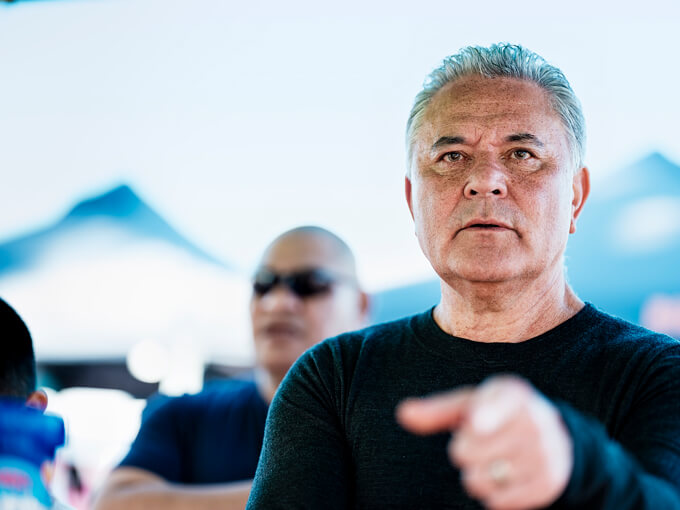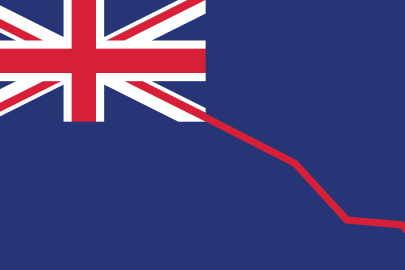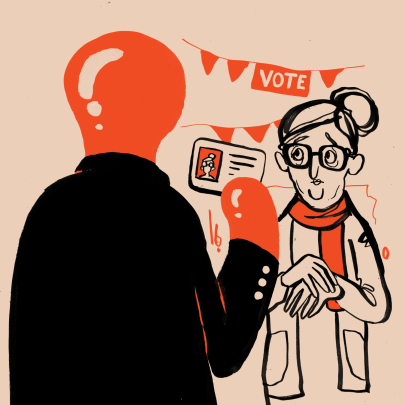Oct 2, 2019 Politics
Auckland’s local government is completely broken when John Tamihere is genuinely the best choice for mayor.
So it has come to this. Three years after Phil Goff’s almost uncontested election as mayor, nothing substantial has changed. Despite Goff having an undisputed mandate and a friendly prime minister and finance minister, Auckland’s public transport system is as inadequate as ever. Even on the kindest assessment, progress is glacial.
After Len Brown finally won the government’s support for the transformational City Rail Link, the focus unfathomably switched from completing a world-class Singapore-style rapid transit network to new proposals for trendy new trams. If the first tram goes ahead, from the CBD to Mangere, it will set back the case for rapid transit for a generation as it inevitably goes radically over budget and takes at least twice as long as promised.
Meanwhile, Goff has swivelled from supporting opening up the waterfront to being a sad apologist for the environmentally vandalous and economic loss-making port. On Goff’s watch, the port has even been allowed to begin construction of the five-storey carpark for second-hand imports.
No progress has been made on a second harbour crossing. No one in the construction industry can point to any improvement in the council’s bloated procedures for building consents that caused the housing crisis. Failures by central government mean homelessness has worsened, with Goff seemingly wanting to make Auckland ratepayers responsible for addressing social issues like mental health and addiction rather than Wellington. Rates and debt keep drifting up but, even then, not to the extent they would make any real difference to services or infrastructure.
That no one really believes any of this can be fixed is evidenced by the only serious challenger to Goff, who is 66, being another has-been baby boomer, John Tamihere, 60. Gen X has completely failed to step up and this time there is not even a precocious millennial like 2016’s Chloe Swarbrick to shake things up. The choice is between the Bright Young Thing of the Lange-Douglas Government 35 years ago and the Great Brown Hope of the Clark Government in 1999.
Since the 1980s, Goff has proven to be competent in all respects. Not a single scandal, personal or political, has stuck to him. He faithfully rolled out Rogernomics in housing and education in the late 1980s, finalised and signed the free-trade agreement with China in 2008, and loyally took one for his Labour team as Leader of the Opposition against John Key in 2011. He has been a perfectly adequate administrator as mayor. In particular, he has maintained cordial relations with Wellington under both the Key-English and Ardern regimes. Exactly the same can be expected in his second term with either a re-elected Ardern or surprise Bridges administration. But Auckland Council and the city’s infrastructure are so broken that they need more than three more years of the grey man.
In contrast to Goff, does anyone personify Auckland better than Tamihere: ethnically diverse; relatively young but wishing he were younger; full of potential; undoubtedly flawed; angry at his own and others’ mistakes from the past; genuinely kind, caring and competent deep down; and probably unable to turn things around?
But just maybe he can.
Tamihere’s proposed strategy, much mocked by Goff, is to bang the table and shake things up. His campaign can charitably be described as poetic. There will be no 0800 JACINDA line to seek help for the homeless, nor a new 18-lane harbour bridge. Watercare will not be sold, nor the port all at once. But there will be an insistence central government takes responsibility for social problems instead of passing them over to ratepayers; a recognition the second harbour crossing is needed now; a willingness to look more creatively at the council’s balance sheet; and a firm deadline in the 2030s for the port to move to Marsden Point.
Tamihere’s priority will not be to maintain his personal relationships with Jacinda Ardern and Grant Robertson — or Simon Bridges and Paul Goldsmith — but to use his bully pulpit to apply political pressure on Wellington to open the taxpayers’ wallet for Auckland. On a smaller scale, he has an unrivalled record of doing exactly that to fund his wrap-around social services at Te Whanau o Waipareira. No one in the Wellington establishment particularly likes him, but that hasn’t stopped him securing their support for the poor and downtrodden of West Auckland, with remarkable results. His style may include bluster and bullshit, but it has a record of succeeding against the odds in a way a grey man never can.
Of course, Tamihere may completely fail, in which case we will be no worse off. And if the whole exercise is a disaster, at least it will be entertaining, and bring forward the day of reckoning that Rodney Hide’s Super City model has sadly failed.
Voters have nothing to lose.
For an opposing view, you can read why Henry Oliver will be voting for Phil Goff ?here.
This piece originally appeared in the September-October 2019 issue of Metro magazine, with the headline “Mayor Tamihere”. Metro would also like to note it was published before Tamihere used the Nazi slogan “sieg heil” during a debate.






